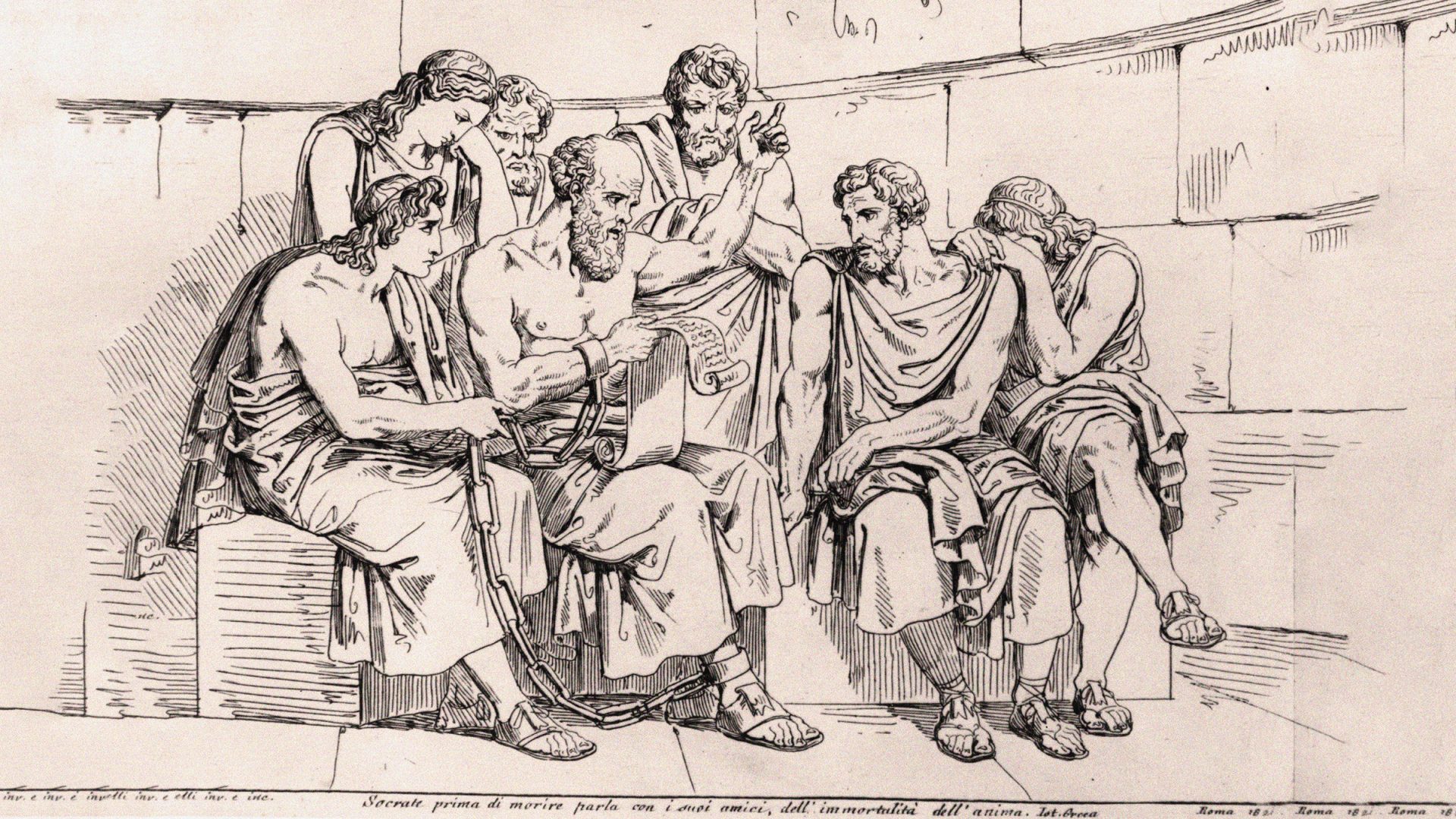Philosophy thrives on vigorous debate. Good philosophers relish criticism and being shown that they are mistaken.
In the dialogue known as the Gorgias, Socrates even went so far as to declare that he would be pleased to be refuted if he said anything untrue. Like many of us, he enjoyed exposing flaws in others’ reasoning and pointing out erroneous assumptions, but he was equally delighted to have the same done to him. If you’re serious about pursuing truth, anyone who shows you that you’ve taken the wrong path does you a great favour in saving you from error.
Clinging to your beliefs in the teeth of accurate criticism is a sign of psychological insecurity, not of strength. If you want to get closer to the truth about anything, heed John Stuart Mill’s advice: don’t just play devil’s advocate against your own ideas but seek out those who sincerely hold a contrary view. Only if your most cherished beliefs can withstand sustained critique from sincere opponents can you regard them as living convictions rather than dogmas. We need opponents to help us think clearly.
There’s an intellectual fashion of reacting to any talk of truth with Pontius Pilate’s question “Ah, what is truth?”, to put truth within scare quotes to indicate that it is a contested concept, or to declare inconsistently that there is no truth at all – a self-refuting claim since the speaker clearly believes the statement “There is no truth” to be true. A consequence of a postmodern attitude to truth is that some people can’t say “It’s true that the Holocaust happened” without going into paroxysms about precisely what “truth” means.
David Hume had a nice response to the philosophical sceptic when, in the voice of Cleanthes, a character in his Dialogues Concerning Natural Religion, he suggested that the test of whether a sceptic was sincere would be whether after their discussion he left by the door or the window. If he really doubted whether a fall would injure him, it shouldn’t make much difference. Some postmodernists seem to imply that gravity is merely a social construct, nothing more; but they still leave by the door.
Suggested Reading


How to make the perfect cosmopolitan
The spirit of Socrates lies behind the notion of academic freedom. This is the idea that, since university researchers aim to get closer to the truth in whichever area they are investigating, they should be independent of political and other pressures to hold to a party line. They should have extensive freedom to question received wisdom, and fashionable assumptions, even dominant views about what truth is.
An open exchange of ideas, including controversial or unpopular ones, is the best way to get closer to truth on any issue, as long as those ideas are defended by argument and empirical research, and are refutable. The alternative approach which allows outsiders to set research agendas along partisan lines collapses into a kind of truth by authority. Stalinism should have no place in the academy.
Anyone who has followed what’s happening in US universities today will realise the extent to which academic freedom is under threat, despite First Amendment protections for extensive free expression. But such overt political interference is not necessary to channel research down preselected routes. There is a long history of academics in the UK being boycotted, no-platformed, harassed, threatened and hounded out of their jobs for expressing unpopular views, despite their conclusions meeting academic thresholds for evidence and argument.
Recognising direct and indirect pressures to curb free academic enquiry, pressures that they see as antithetical to the Socratic tradition of using argument and evidence to establish what we do, don’t, and cannot know, three philosophers, Francesca Minerva, Jeff McMahon, and Peter Singer, launched the Journal of Controversial Ideas in 2021. It’s still running.
This is an interdisciplinary online, open-access, peer-reviewed journal. It allows academics to publish under a pseudonym if they’re worried about professional and personal repercussions of exploring ideas which may trigger students and colleagues. Its most recent issue includes articles on racial differences and on sex reassignment. Publication doesn’t indicate endorsement, far from it, but rather that the editors deem an article to have passed a threshold for level of argument and use of evidence, and so should be part of an ongoing debate, even if its conclusions turn out to be false.
It’s a mark of our times that the very existence of The Journal of Controversial Ideas is controversial, and that its editors receive death threats.




